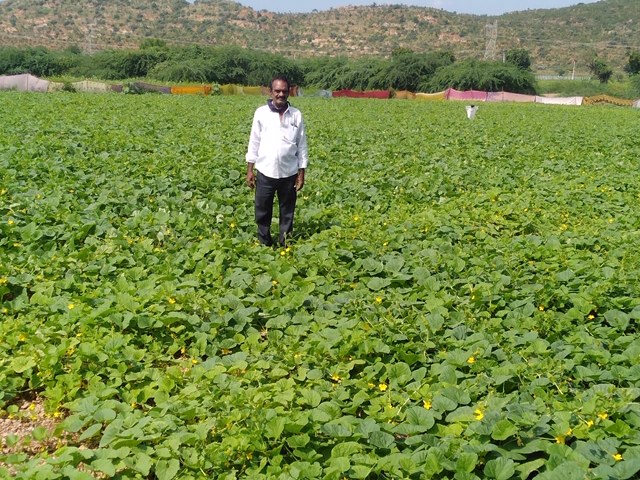
Higher Profits, Healthier Families
Mr. Ramaiah used to grow mainly chilies and water-guzzling cotton. Unpredictable weather patterns and traditional agriculture practices often left him with low yields, causing him to have to borrow money to pay for fertilizer, pest management and seeds so he could keep trying. His poor results, coupled all too frequently with unsatisfactory market prices, meant he couldn’t pay off his loans.
When he became a member of a farmers group supported by local partner CHETHANA, things started to get better. He began using dryland organic farming practices to grow vegetables and several types of millet. Comparatively speaking, millet cultivation has a lower input cost, requires less work and generally results in reasonable profit. His family was delighted to have healthy, fresh vegetables and millet for the table, straight from their own fields. There was even enough to sell in the local market for quick cash.
CHETHANA is seeing a lot of buy-in from local farmers on organic farming, planting drought-resistant native crops like millet, and producing more vegetables. Their proven practices reduce labor and debt, increase biodiversity, lower the risks of climate uncertainty, and improve nutritional variety and intake. The farmers themselves make it clear that the recommended techniques and crops are making a big difference to them. As families change their food habits and incorporate more millet and vegetables in their diet, their health improves.
Through Mr. Ramaiah’s involvement with the CHETHANA program, his family’s financial, food and nutritional security has been strengthened. Encouraged by his successes, he started growing creeper cucumber on one acre, and in just three months made a handsome profit.
India South Program
Led by PCUSA and Local Partner CHETHANA
